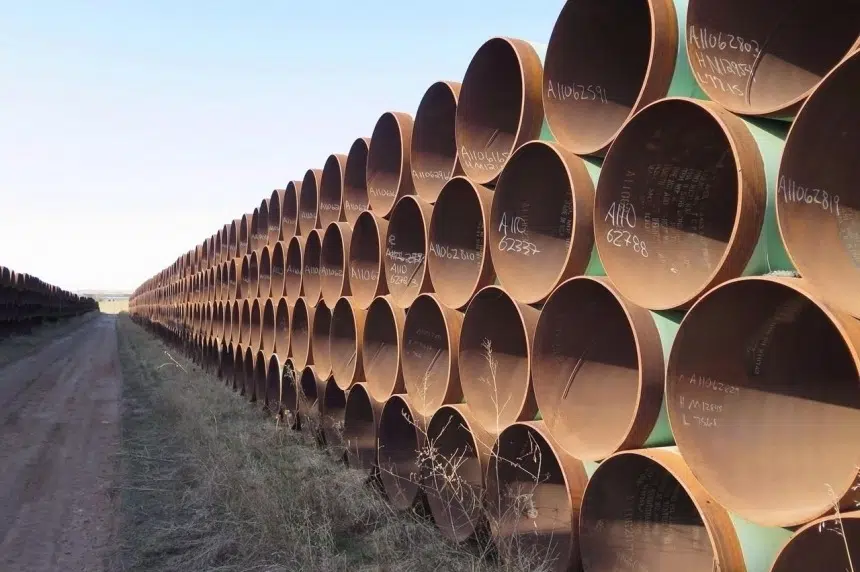Saskatchewan is seeking intervener status in the B.C. pipeline case.
The west coast province is asking its highest court whether it can regulate the flow of heavy oil.
Intervener status allows Saskatchewan the chance to argue in court that pipelines are in the national interest and should not be governed by provinces.
“We are dismayed that a pipeline that will benefit many people across Canada continues to be held up by unreasonable delays,” Saskatchewan Justice Minister and Attorney General Don Morgan said.
“As we argued in the previous case involving the city of Burnaby, it is Saskatchewan’s position that these pipelines are in the national interest and fall under federal, not provincial, jurisdiction.”
On December 7, 2017, the National Energy Board ruled that the Trans Mountain pipeline is not required to comply with the two bylaws cited by the City of Burnaby as its reason for delaying the issuing of permits to Trans Mountain.
In its decision, the National Energy Board agreed with Saskatchewan that it would be contrary to a basic principle of federalism if one province, or a single municipality of one province, held the power to impede the construction of an interprovincial pipeline.
But the B.C. NDP minority government, under Premier John Horgan, launched a reference case to its Court of Appeal concerning the constitutionality of the proposed amendments to the Environment Management Act. It would give the province the authority to regulate the effects of heavy oils, including diluted bitumen.
“Saskatchewan remains dedicated to standing up for the hard-working people in our natural resources and energy sectors,” Morgan said.
“We know that these pipelines are necessary for our energy companies to get their products to tidewater to ensure a competitive price and that the increased capacity this pipeline represents stands to benefit all Canadians.”
Kinder-Morgan has suspended all non-essential spending while this fight goes on and said if it doesn’t get certainty it will walk away.
Premier Scott Moe is also backing the Alberta government’s plan to fight back by introducing legislation to block oil exports.











